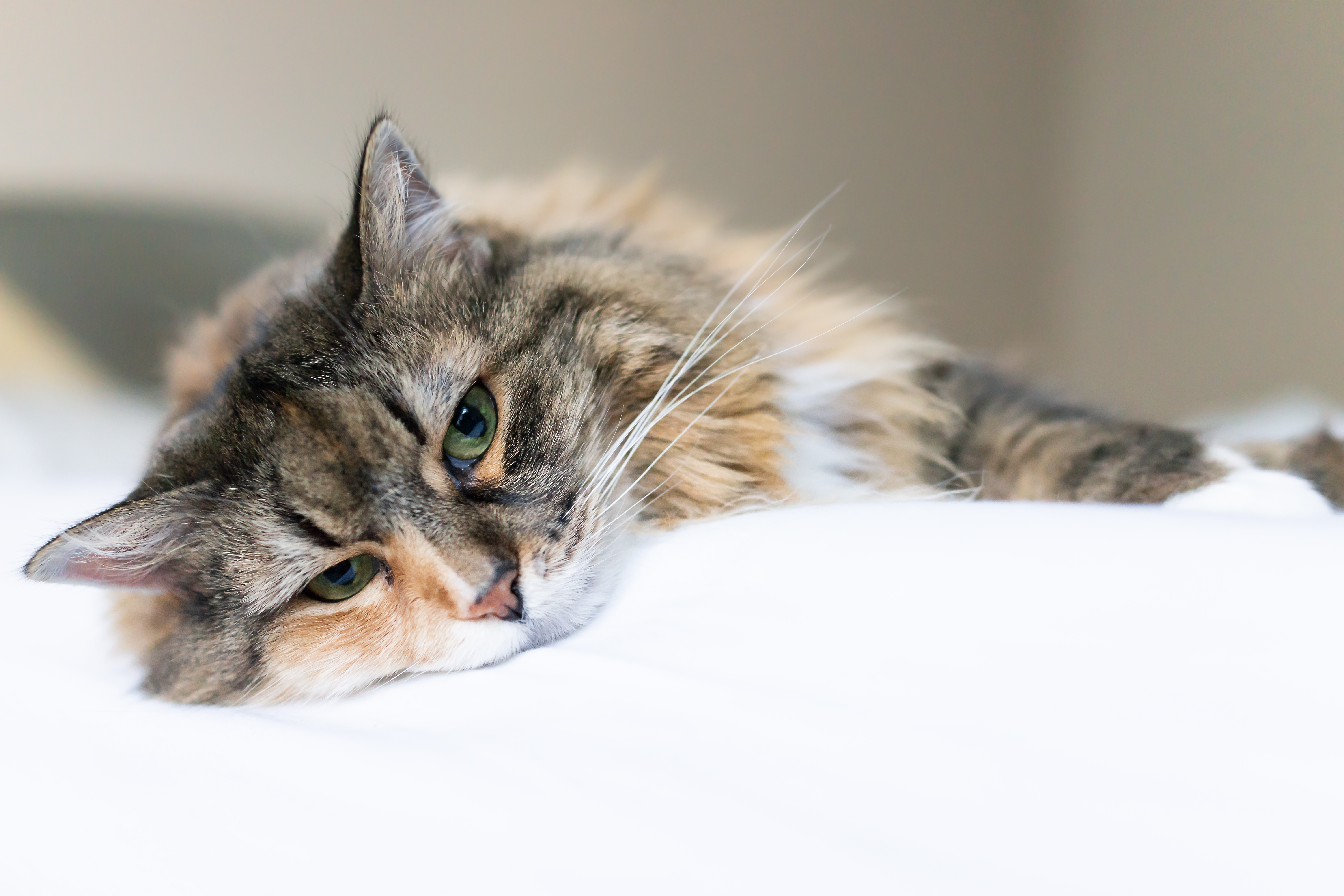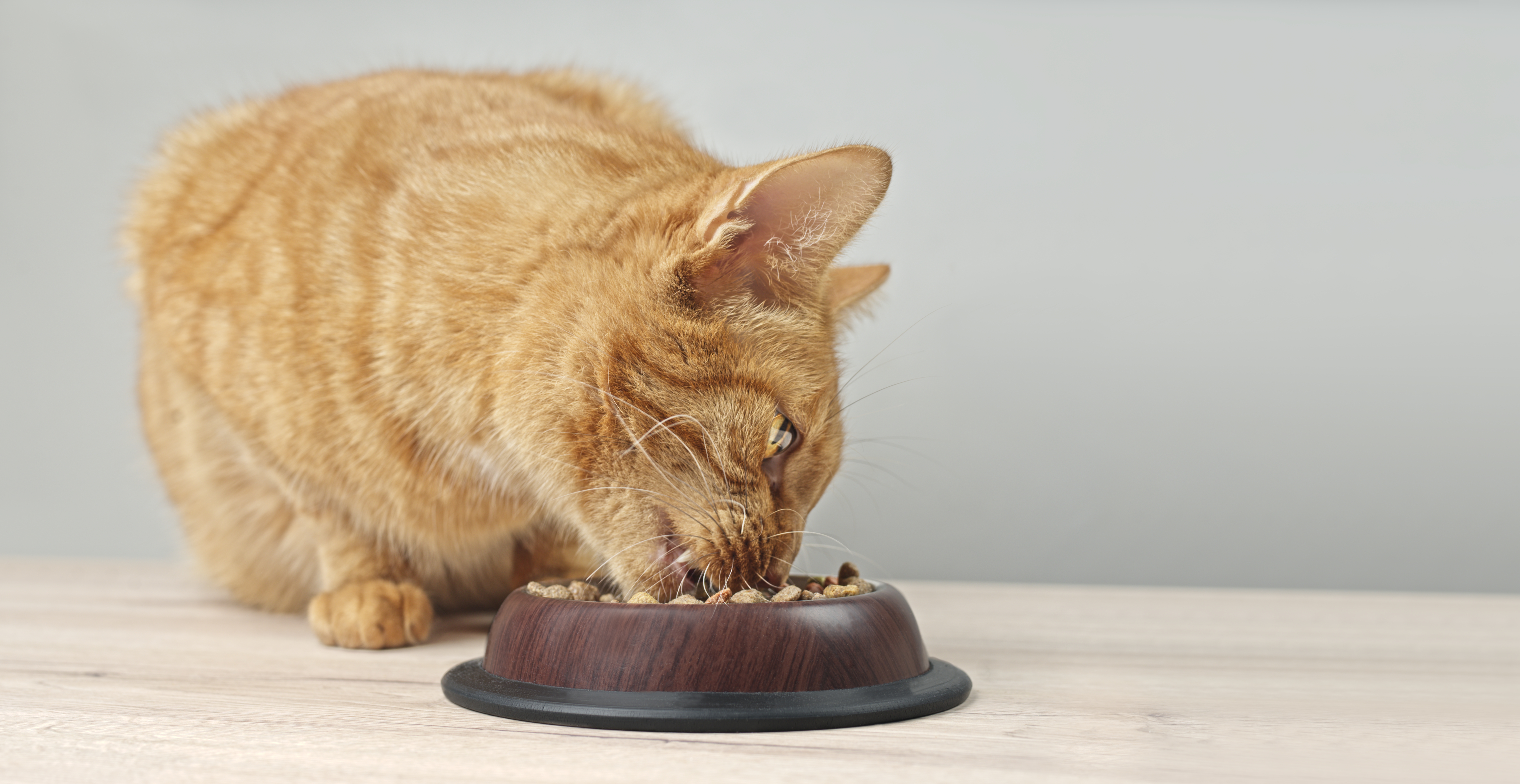
Are Allergies Preventing Your Kitty from Absorbing Food Nutrients?
When we eat, our bodies break down food using a number of enzymes and microorganisms to extract nutrients. From there, the nutrients are absorbed by the body and transported for use in a wide range of bodily processes to keep us healthy. Without these macronutrients, vitamins and minerals, our bodies would not be able to function.
Our pets’ bodies work in the same way. If your cat’s digestive system fails to absorb nutrients in the way that it should, your cat is experiencing a syndrome called malabsorption. This problem can be linked to a number of health issues, but one that many pet owners often don’t consider is food allergies.
Unfortunately, it can quite difficult to tell when something is wrong with our cat’s digestive system because our feline friends can’t tell us if something feels off. It is up to us as pet owners to watch for the signs of malabsorption and further symptoms to deduce the underlying cause, then get our pets the help they need to stay healthy.
What is malabsorption?

Malabsorption is the term used to describe when a cat’s body is not absorbing nutrients like it should. The cat may have difficulty absorbing one type of nutrient or many.
When malabsorption occurs, cats tend to display numerous signs related to the gastrointestinal system like flatulence, vomiting and diarrhea. Stools may also look different, sometimes containing undigested food.
However, other symptoms may be present that note the lack of nutrients being taken in by the body—namely rapid weight loss, increased appetite, lethargy, a dull coat and poor skin. Nutritional deficiencies caused by malabsorption ultimately affect the entire body and can have harmful consequences in the long term if the issue is not treated soon enough.
The reason malabsorption occurs usually has to do with some type of disruption in your cat’s colon. The problem typically lies in the small intestine, where most nutrients are absorbed, but some problems may also affect the large intestine, as well. Numerous underlying problems might be linked to malabsorption, each of which affect the intestines and makes it difficult or nearly impossible for the body to take in the nutrients it needs.
The link between allergies and nutrient absorption

One potential cause of malabsorption in cats is actually something quite common—food allergies. If your cat is eating something it is allergic to day after day, they may experience inflammation of the bowel as their body fights back against the “harmful” ingredient.
Full-blown food allergies are not always necessary for this to happen, either. Minor food intolerances can also cause inflammation in the bowel. When the bowel is inflamed, the bowel wall is not able to absorb nutrients as it should.
If you suspect malabsorption is plaguing your cat, keep an eye out for other signs of allergies. These may include vomiting and diarrhea, or more physical changes like skin inflammation and persistent itchiness. If you notice these signs, make sure to communicate them to your veterinarian to help them identify the true underlying problem.
If food allergies are suspected to be the issue, rectifying the problem is relatively simple. Your cat will need to be put on a new, hypoallergenic diet containing a novel protein and carbohydrate for a few weeks.
If symptoms subside while your cat is on this diet, then food trials may be necessary to pinpoint the specific allergen in the food. Avoiding this allergen in future food choices for your cat will prevent malabsorption and other allergy-related symptoms from occurring.
Other potential causes
Unfortunately, many other health problems can lead to malabsorption, as well. The wide range of potential causes can make it difficult to reach a diagnosis early on. Other causes of malabsorption may include:
- Inflammatory bowel disease
- Hyperthyroidism
- Lack of digestive enzymes
- Microbial imbalances in the gut
- Cancers of the bowel
- Parasitic worms
- Infections of the bowel
- Damage to the gut lining
In order to assist your veterinarian in reaching a conclusion faster, be prepared to share any and all symptoms you’ve observed in your cat. The vet will likely run multiple tests, including fecal tests to identify infections and parasites and blood tests, to determine the true cause.
With the underlying problem diagnosed and treated, malabsorption should rectify itself in time. Some underlying problems may not be curable, however, in which case a treatment plan will be necessary to help your cat live the healthiest life possible.


